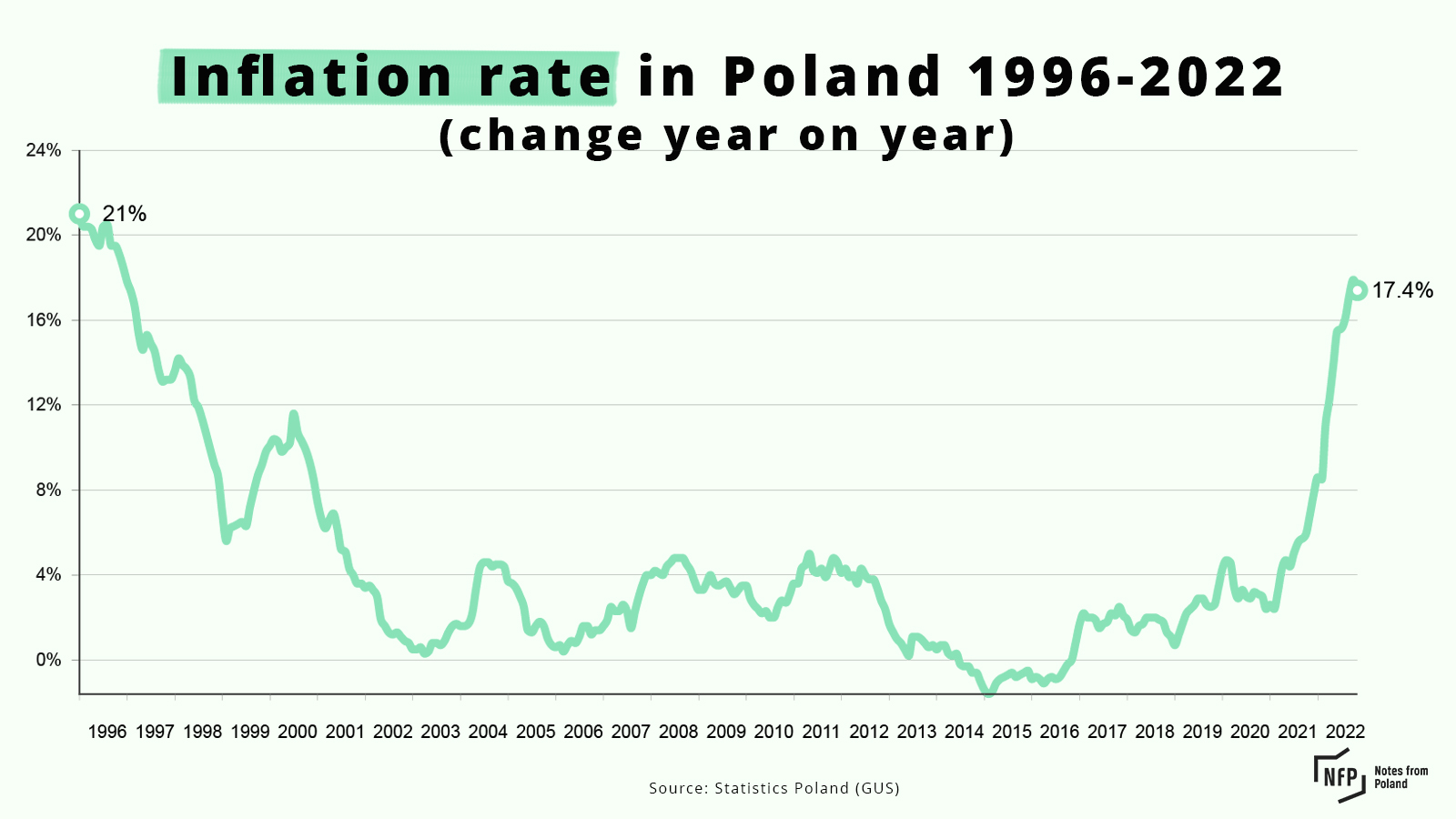Annual inflation slowed in November to 17.4%, down from 17.9% in October, according to preliminary figures published today by Statistics Poland (GUS), a state agency. That drop surprised economists, among whom the consensus forecast was for November to see an 18% year-on-year rise.
The slowdown in inflation is the first since February, when the Polish government introduced a range of measures – such as cuts on VAT for food and fuel – aimed at shielding consumers from price rises. If February is excluded, inflation slowed last month for the first time since mid-2021.

According to analysts at mBank and financial service provider Cinkciarz.pl, the November slowdown means that this year’s inflation peak has already been reached.
But, in a note to clients, mBank added that it was worth emphasising that “the real” peak will come early next year when the government modifies its anti-inflation policies.
Earlier this month, Prime Minister Mateusz Morawiecki announced that some measures would have to be withdrawn due to “threats from the EU”. VAT rates will return to previous levels from January, reports Business Insider Polska, though Morawiecki has pledged that VAT on food will remain at 0% for at least the first half of 2023.
Assuming some anti-inflation measures are lifted at the start of the new year, mBank expects inflation to peak at around 19-20%.
Analysts at another large bank, Pekao, also noted that, despite the slowdown in inflation overall, so-called core inflation – a measure that excludes the most volatile prices of food, energy and fuel – “remains on an upward trend”.
They estimate that core inflation may have reached around 11.3% in November, compared to 11.0% in October. The official core inflation figure for November is scheduled to be published by the central bank on 16 December.
No to mamy pierwszy od połowy ubiegłego roku spadek inflacji (nie licząc wprowadzenia Tarczy w lutym). W listopadzie inflacja obniżyła się do 17,4%. Uwagę zwraca spadek m/m cen energii (pewnie za sprawą węgla). Inflacja bazowa pozostaje w trendzie rosnącym (wzrost do ok. 11,3%). pic.twitter.com/YVXZh1sp8Q
— Analizy Pekao (@Pekao_Analizy) November 30, 2022
Today’s GUS data show that energy prices in November rose 36.8% year on year. That was down from a figure of 41.6% in October and, month-on-month, energy prices fell by 0.1% (compared to an overall month-on-month inflation rise of 0.7% from October to November).
Pekao’s analysts note that the drop in energy prices from October to November is likely to be linked to the fall in coal prices, which had previously risen sharply earlier this year following the introduction of sanctions on coal from Russia.
Meanwhile, the cost of fuel for private means of transport rose by 15.5% year-on-year in November, also slowing from annual inflation of 19.5% in October. On a monthly basis, fuel prices fell by 1.2%.
By contrast, rises in food prices accelerated in November to 22.3% year-on-year, compared to 22.0% in October. Month-to-month, food prices rose by 1.6%.
Main photo credit: Karolina Grabowska / Pexels.com

Alicja Ptak is deputy editor-in-chief of Notes from Poland and a multimedia journalist. She has written for Clean Energy Wire and The Times, and she hosts her own podcast, The Warsaw Wire, on Poland’s economy and energy sector. She previously worked for Reuters.




















